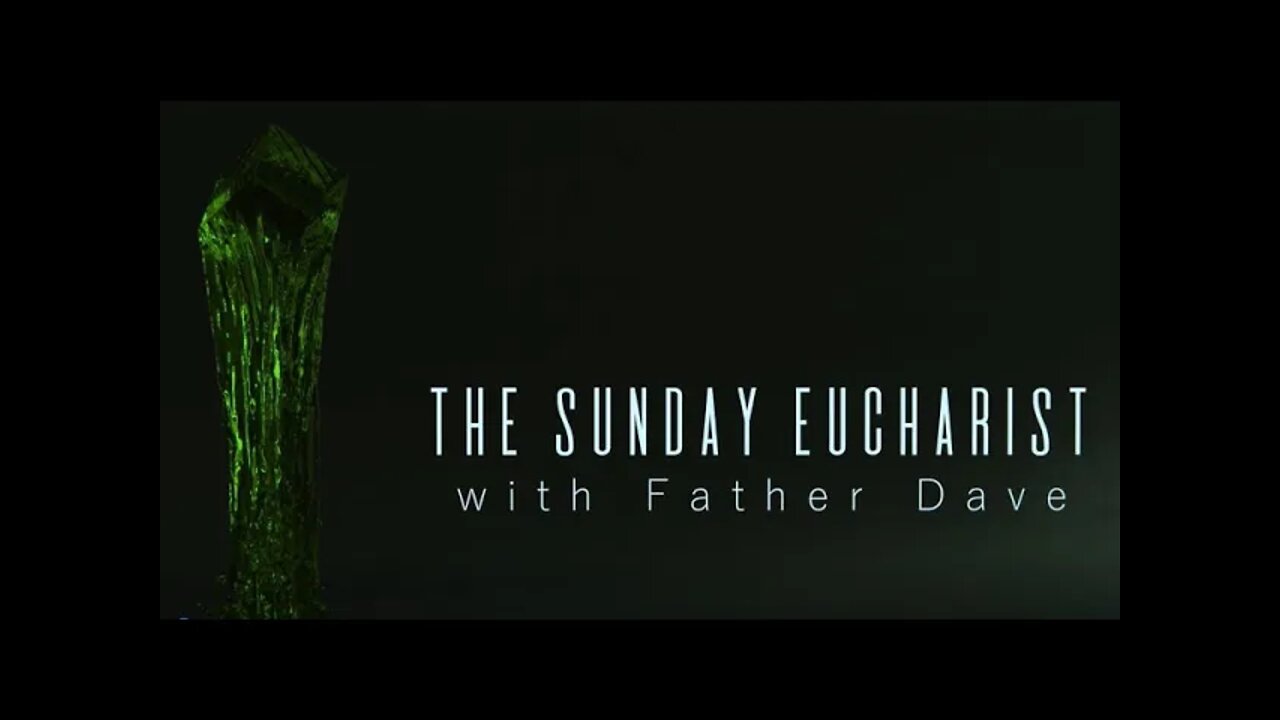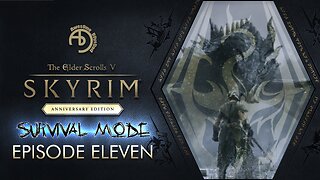Premium Only Content

The Sunday Eucharist - November 14, 2021
It was good to have my friend, Michael O’Neill, with me last Sunday.
Michael is the founder of the Informed Medical Options Party – a political movement that he started some years ago, aimed at protecting the rights of parents to make decisions over the bodily integrity of their children. Michael’s passion for the cause goes back the experience he had with his own eldest child and vaccines, and he’s been involved in the natural health industry now for 35 years. Michael is also a man who knows his Bible well, and made a great contribution to our discussion.
Our reading from the Hebrew Bible (1 Samuel 2:1-10) goes back to the story of the miraculous birth of Samuel – the last of Israel’s judges and the first king-maker. As the church year finishes this week, this is just a one-off reading from the first book of Samuel. We are not going to continue with this story but this episode does give us a curious contrast with the story of Ruth that we have just concluded, and which is set in the same time-frame. Ruth was a story of two women who strove together against the odds. Samuel’s story begins with two women who seem to hate each other! Hannah (Samuel’s mother) is taunted by her husband’s other wife, misunderstood by the priest, and gets no support from her husband. Even so, where the men fail, God steps in to support Hannah and answer her prayers.
Our second reading (Hebrews 10:11-25) is our final offering from the letter to the Hebrews, and it again extolls the way in which Jesus completes the old system of worship with which the letter’s readers were familiar. Now that Jesus has come, faith is more personal and intimate than in the old temple system. The old sacrificial system never really dealt with sin, but Jesus has now dealt with it once and for all. It’s not the blood of anonymous animals that was shed but the blood of our Lord, and the law is no longer written on stone tablets but is written on our hearts!
Our Gospel reading (Mark 13:1-8) has Jesus giving us a sobering perspective on the impermanence of all great human achievements. The disciples are awed at the grandeur of the temple, yet Jesus tells them that it won’t be long before the entire edifice will be reduced to rubble! This happened quite literally, of course, within a generation of Jesus making this statement (in around 70 AD) but the depiction of impermanence is bigger than the temple itself.
There will be “wars and rumours of wars” and “nation will rise against nation” (Mark 13:7,8) but these things should not alarm us. Impermanence and chaos are experienced by every generation in human history. Being realistic about this gives us perspective on what is important in life, and helps us to make the most of the time we have.
-
 DVR
DVR
megimu32
1 hour agoON THE SUBJECT: Jock Jams & Space Jam - Soundtracks of Our Childhoods
6.31K5 -
 1:26:56
1:26:56
Glenn Greenwald
5 hours agoFederal Court Dismisses & Mocks Lawsuit Brought by Pro-Israel UPenn Student; Dave Portnoy, Crusader Against Cancel Culture, Demands No More Jokes About Jews; Trump's Push to Ban Flag Burning | SYSTEM UPDATE #466
69.5K68 -
 2:21:11
2:21:11
RiftTV/Slightly Offensive
4 hours agoSimone Biles Admits DEFEAT Against Riley Gaines, LA Riots RAGE ON | The Rift | Guest: RFH
13.9K12 -
 LIVE
LIVE
Spartan
5 hours agoPro Halo Player | Halo Infinite Ranked Arena into SWTOR
49 watching -
 LIVE
LIVE
Joker Effect
1 hour agoL.A Riots, The Game "Minds Eye" sucks! It tried to be GTA 6 and failed! I am the Real Joker, BATMAN!
345 watching -
 LIVE
LIVE
Awes0me_B0ysDad
1 hour agoSkyrim AE | EP 11 | Survival Mode | 2k | Goldenhill Plantation completed
33 watching -
 11:11
11:11
MattMorseTV
6 hours ago $1.15 earnedNewsom's FUNDING just got EXPOSED.
24.5K60 -
 LIVE
LIVE
EzekielMaxwellVT
1 hour agoVTuber/VRumbler | Final Fantasy XIV Online - The Skyruin
15 watching -
 1:06:06
1:06:06
The Daily Signal
3 hours ago $1.01 earned🚨 BREAKING: Judge DENIES Newsom’s Emergency Motion to Block Trump
30.9K28 -
 10:29
10:29
From The Desk Of Anthony Pompliano
5 hours ago $0.30 earnedAmerica’s Boldest Wealth Plan Yet — And It Starts at Birth
42.9K8